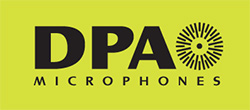Wed, 12 Feb 2025 12:20:53 -0500
 The student chapter of SMPTE-DC will hold the annual Media Forward career event February 27, 2025 at Montgomery College, Rockville, Maryland.
The student chapter of SMPTE-DC will hold the annual Media Forward career event February 27, 2025 at Montgomery College, Rockville, Maryland.
Media Forward connects students with the future of media technology. Join professionals in broadcast, digital media, livestreaming, and more, as they give insights in to their everyday work and share their ideas about the future of the business.
The event is open to all students from high school through graduate students. SMPTE members are encouraged to come support and get to know the next generation of media technology professionals. The event is offered at no charge; however, pre-registration is required.
This event is produced by the Washington DC Section of The Society of Motion Picture and Television Engineers (SMPTE), a global organization of media professionals and technologists, in conjunction with Montgomery College Department of Media Arts & Technologies.
Registration is available now via Eventbrite.
Tue, 11 Feb 2025 11:56:00 -0500
 In a bipartisan vote and the first Commission-level action under Chairman Brendan Carr, the FCC today proposed a $4,492,500 fine against Telnyx LLC related to government imposter robocalls made on its network. Among other potential victims, the calls were made to FCC staff and their family members and purported to be from a fictitious FCC “Fraud Prevention Team.” Telnyx apparently failed to take affirmative, effective measures to prevent malicious actors from using its network to originate illegal voice traffic, a violation of FCC rules.
In a bipartisan vote and the first Commission-level action under Chairman Brendan Carr, the FCC today proposed a $4,492,500 fine against Telnyx LLC related to government imposter robocalls made on its network. Among other potential victims, the calls were made to FCC staff and their family members and purported to be from a fictitious FCC “Fraud Prevention Team.” Telnyx apparently failed to take affirmative, effective measures to prevent malicious actors from using its network to originate illegal voice traffic, a violation of FCC rules.
The FCC has no such “Fraud Prevention Team” and the FCC was not responsible for these calls. The FCC’s Enforcement Bureau believes the purpose of the calls was to threaten, intimidate, and defraud. One recipient of an imposter call reported that they were ultimately connected to someone who “demand[ed] that [they] pay the FCC $1000 in Google gift cards to avoid jail time for [their] crimes against the state.”
“Cracking down on illegal robocalls will be a top priority at the FCC,” said FCC Chairman Brendan Carr. “That is why I am pleased that our first Commission-level action is a bipartisan vote in favor of this nearly $4.5 million proposed fine. This fine flows from an apparently illegal robocalling scheme and continues the FCC’s longstanding work to stop bad actors.”
“Providers are required to know their customers and secure their networks to deter fraudulent and malicious calls,” said Patrick Webre, Acting Chief of the Enforcement Bureau
Mon, 10 Feb 2025 11:03:00 -0500
 In response to the Senate Commerce Committee's passage of the AM Radio for Every Vehicle Act, the following statement can be attributed to NAB President and CEO Curtis LeGeyt:
In response to the Senate Commerce Committee's passage of the AM Radio for Every Vehicle Act, the following statement can be attributed to NAB President and CEO Curtis LeGeyt:
“NAB applauds the Senate Commerce Committee for rapidly advancing the AM Radio for Every Vehicle Act with overwhelming bipartisan support. In just one week since its introduction, this legislation has already gained nearly half of the Senate as cosponsors and cleared a key committee, demonstrating the broad recognition of AM radio’s vital role in keeping Americans informed and safe.
“This bill is essential to ensure that Americans continue to have access to AM radio’s critical local news, diverse community programming and life-saving emergency information in times of crisis. AM radio is the backbone of the Emergency Alert System, providing a resilient and reliable communications lifeline.
“We are grateful for the leadership of Chairman Cruz, Senator Markey, Ranking Member Cantwell and the bipartisan cosponsors of this bill for recognizing AM radio’s indispensable role. We urge the full Senate to move quickly to pass this legislation to ensure AM radio remains accessible to all Americans.”
Thu, 16 Jan 2025 13:19:36 -0500
 DPA Microphones has acquired the majority share of Vienna-based Austrian Audio. Founded in 2017 by former AKG Vienna employees, Austrian Audio builds on that heritage to deliver exquisite, high-quality audio products that are renowned for engineering excellence.
DPA Microphones has acquired the majority share of Vienna-based Austrian Audio. Founded in 2017 by former AKG Vienna employees, Austrian Audio builds on that heritage to deliver exquisite, high-quality audio products that are renowned for engineering excellence.
According to DPA, Austrian Audio caught the attention of DPA Microphones with its fast-growing brand, highly skilled team of dedicated engineers and product portfolio that complements DPA’s offerings perfectly. DPA is a leading manufacturer within several Miniature Microphone categories while Austrian Audio has a strong offering of Large Diaphragm Microphones. Both companies address the high end of the market, with DPA positioned at the very top and Austrian Audio offering a wider span in their product range.
Together, the brands plan to provide a broader product range for discerning sound engineers in industries like broadcast, musical, theatre, live events and recording studios. By joining forces, the brands will design and develop sophisticated, professional audio solutions that meet the evolving demands within the acoustical and digital fields, all while prioritizing the user experience.
Working in partnership with DPA Microphones, Austrian Audio will continue to develop and manufacture high-quality audio products under its own name in Vienna.
Representatives from both companies will be available during the 2025 NAMM Show to discuss this partnership, with DPA Microphones located at Booth 18206 and Austrian Audio at Booth 16102.
Wed, 08 Jan 2025 08:44:00 -0500
 Federal Communications Commission Chairwoman Jessica Rosenworcel today announced a major step forward in expanding multilingual Wireless Emergency Alerts. Based on public feedback, the agency has created templates for the 18 most commonly issued and time-sensitive alerts in the 13 most commonly spoken languages in the U.S., plus English and American Sign Language (ASL). Public safety officials will have the option to use these customizable multilingual template alerts in order to better warn their communities and save lives.
Federal Communications Commission Chairwoman Jessica Rosenworcel today announced a major step forward in expanding multilingual Wireless Emergency Alerts. Based on public feedback, the agency has created templates for the 18 most commonly issued and time-sensitive alerts in the 13 most commonly spoken languages in the U.S., plus English and American Sign Language (ASL). Public safety officials will have the option to use these customizable multilingual template alerts in order to better warn their communities and save lives.
“The language you speak shouldn’t keep you from receiving the information you or your family needs to stay safe. During an emergency, life-saving alerts should be accessible to everyone,” said Chairwoman Jessica Rosenworcel. “Our public safety partners have made it clear that one of the main barriers to multilingual alerting is the ability to translate time-sensitive messages into additional languages during crises. The multilingual Wireless Emergency Alert templates we announce today are a long-time coming and will make it so officials can reach more people with urgent messages and save lives.”
“FEMA supports the FCC’s effort to improve access to Wireless Emergency Alerts for individuals with limited English proficiency," said Michael S. George, Associate Administrator of FEMA's Office of National Continuity Programs. "This initiative will help alert originators communicate quickly with the public during critical emergencies.”
In February 2024, as directed by the Commission, the Public Safety and Homeland Security Bureau sought comment on implementation details, including which alerts should have multilingual templates and the translations for those templates. Today’s Report and Order from the Bureau incorporates that feedback and presents the templates for the most common and time- sensitive alerts, such as hurricane, tornado, and earthquake warnings, in the 13 most commonly spoken languages in the U.S., in addition to English and ASL: Arabic, Chinese, French, German, Haitian Creole, Hindi, Italian, Korean, Portuguese, Russian, Spanish, Tagalog, and Vietnamese.